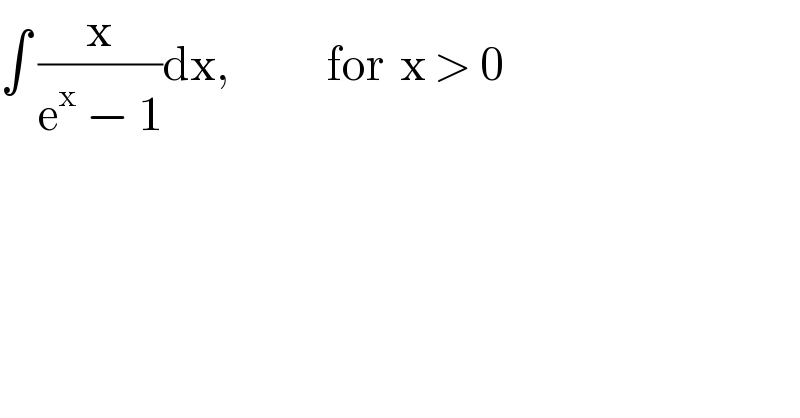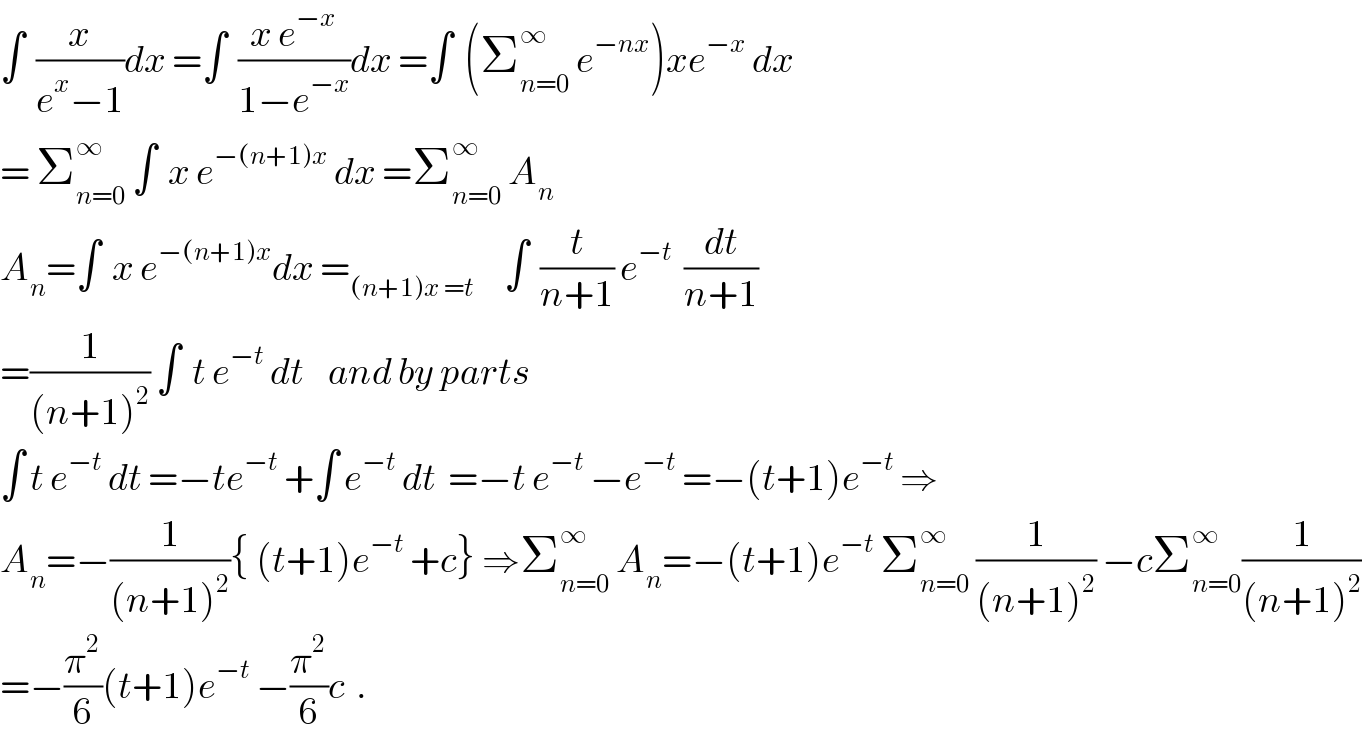
Question and Answers Forum
Question Number 62453 by Tawa1 last updated on 21/Jun/19

Commented bymathmax by abdo last updated on 21/Jun/19

Commented byTawa1 last updated on 21/Jun/19

Commented bymathmax by abdo last updated on 22/Jun/19

| ||
Question and Answers Forum | ||
Question Number 62453 by Tawa1 last updated on 21/Jun/19 | ||
 | ||
Commented bymathmax by abdo last updated on 21/Jun/19 | ||
 | ||
Commented byTawa1 last updated on 21/Jun/19 | ||
 | ||
Commented bymathmax by abdo last updated on 22/Jun/19 | ||
 | ||